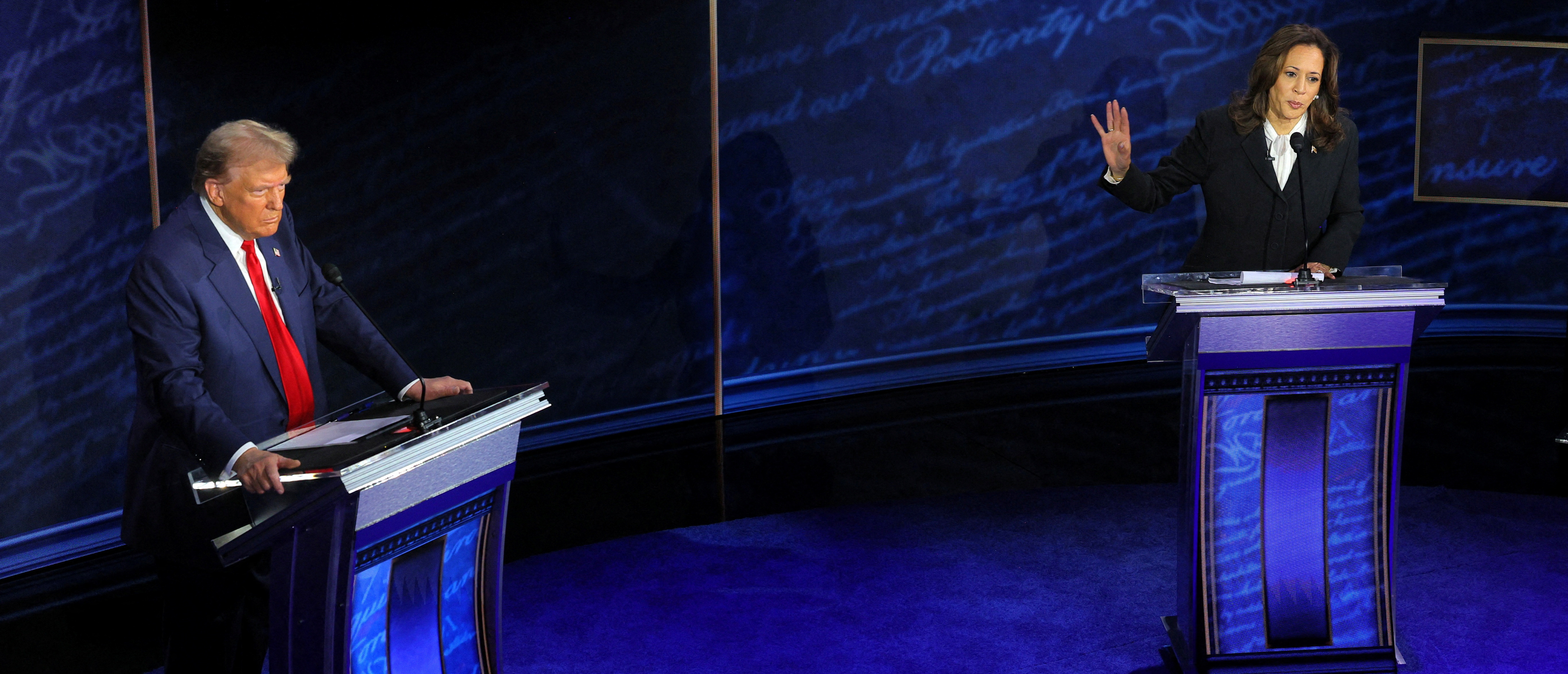Last Tuesday, 60 million viewers across the globe tuned in to watch former President Donald Trump and Vice President Kamala Harris face off in the second presidential debate of 2024. Notably, this was the first time that the pair had ever met in person, and the debate marked the most significant event of the election since President Joe Biden announced his withdrawal from the presidential race in July. With Biden’s failures largely obscuring the policies of her campaign, Harris’ primary intent with the debate was to succinctly convey her specific policy objectives to impressionable voters. She likely sought to distinguish herself from the immensely controversial tenure of Biden, who had an approval rating of just 39% at the time that he declared his intent to drop out of the race.
On the contrary, Trump intended to replicate his relatively decisive victory in the presidential debate in June, in which he prevailed over the rambling, stuttering mess that was Biden. His main goal was to clear up any misconceptions that were perpetrated by the Democrats surrounding his policy and highlight the success of his presidency in a civil manner. The general consensus remains that Harris decisively outperformed Trump in the debate, with a subsequent CNN poll revealing that viewers believed she had won 63% to 37%. Despite this discrepancy in debate performance, the latest polls show less than a 1% margin of difference between the candidates. As such, many believe that the 2024 election is shaping up to be the closest election in history. This is an analysis of the language of the Trump-Harris debate.
The Language of Trump
First, let’s look at former president Trump. Trump has a particularly aggressive style of debate, characterised by frequent interruptions and the use of effective personal attacks. Rather surprisingly, however, he exercised restraint during his debate with Biden in June and largely refrained from interrupting his opponent. Perhaps this was in part due to the muted microphones, but Trump’s less aggressive performance drew the audience’s attention to Biden’s incoherent rhetoric and frequent stutters. His decision to step back and watch Biden fail ended up being instrumental to his successful performance in this debate. This tactic, however, would prove far less effective against an assertive candidate like Harris. Her desire to control the conversation was on full display during her debate with Vice President Mike Pence in 2020.
Throughout the debate, Trump focused significantly more on himself, choosing the singular pronoun ‘I’ to describe his views and the achievements of his administration over the collective ‘we’ that politicians typically use. The first person singular pronoun indicates a strong desire for individual agency and an affirmation of the presidency being at the forefront of the executive administration. Notably, Trump did not mention Harris’ name a single time throughout the entirety of the 90-minute debate and instead resorted to third person pronouns whenever he referred to her. This refusal of direct dialogue and anonymisation of Harris allowed Trump’s attacks to appear less personal while enabling him to better address the audience.

Additionally, Trump placed significant emphasis on the recent past. He also used words and phrases with negative connotations far more frequently than Harris. This negativity, coupled with an average of just 13.5 words per sentence, indicates a desire to create a sense of urgency and contempt for the recent failures of the Biden administration. Ultimately, Trump’s performance in the debate was relatively lacklustre, and he was often baited into discussing unrelated topics such as crowd sizes and the stolen election. Despite this, he did manage to deliver an exceptional closing statement, in which he questioned why Harris had not implemented her policy proposals already after four years as Vice President. If Trump had stayed on topic and spent more of the debate focusing on the unsuccessful record of the Biden-Harris administration rather than irrelevant details, he might have been more successful.
The Language of Harris
Next, let’s look at Vice President Harris. Harris has a similarly aggressive style of debate that is relatively unusual for a female politician, allowing her to respond to Trump’s assertiveness far more effectively than a candidate such as Hillary Clinton in 2016. We saw this during the 2020 vice presidential debate with Pence, in which she famously responded with the phrase “I’m speaking” whenever he attempted to interrupt her. The most significant flaw of Harris’ rhetoric is her tendency to use exceedingly long sentences with complex words, often causing her to sound incoherent and unintelligible. She did, however, mostly avoid this throughout the debate, allowing her to effectively communicate her policy objectives to the American people.
In stark contrast to Trump, Harris decided to focus on the Democratic Party and the Biden-Harris administration as a collective body, using ‘we’ when she referred to her beliefs and achievements. Harris’ decision to use the first person plural pronoun reveals her belief in collaboration and collective achievement, and shifts the burden of responsibility away from an individual. However, it is important to note that Trump is in a better position to use ‘I’ when describing the achievements of his administration, as he is a former president, unlike Harris. Notably, Harris often chose to address Trump directly rather than through the audience, indicating a desire to engage in direct dialogue and a belief in personal accountability.
She also placed significantly more emphasis on the immediate present as well as the future, frequently making references to her current achievements as Vice President and her future policy objectives. This reveals the less aggressive nature of Harris’ argumentation, as she preferred to focus on the successes of her administration and her future plans rather than Trump’s failures. Her average of 21 words per sentence reflected this hopeful sentiment for the future, creating a sense of fluidity and a lack of urgency. Harris ultimately delivered on her objective of conveying her policies and differentiating herself from Biden, and managed to distract Trump along the way by mentioning crowd sizes, immigration and the validity of the 2020 election. By all metrics, this was a highly successful debate for Harris, which is well and truly reflected in her recent success at the polls.
Read more: The Insight Corner



